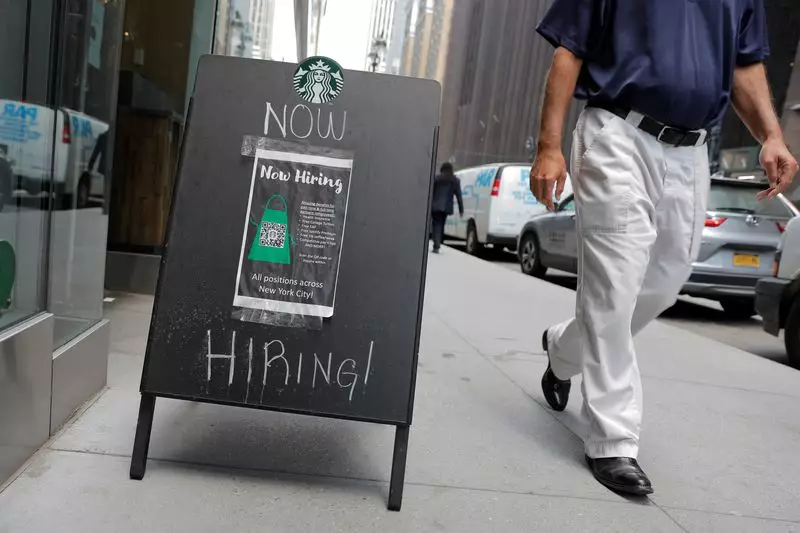Recent analyses from economists at Wells Fargo suggest an optimistic outlook for the U.S. economy, proposing that the likelihood of a recession is diminishing in favor of a soft landing. This shift signifies a transition where economic indicators are stabilizing instead of signaling a sharp downturn. As we approach the end of 2024, it appears that the Federal Reserve’s ambitions for a gradual economic recovery are beginning to bear fruit.
The Fed’s recent decision to reduce interest rates for the first time since the disruptions caused by the pandemic emphasizes this sentiment. Positive signs are emerging in the labor market, alongside a deceleration of economic activity. These elements highlight a crucial point: disinflation, which refers to the slowdown of inflation rates, could empower consumer spending and elevate real incomes. Given that inflation has decelerated comparatively earlier than in past downturns, it paves the way for sustainable economic growth.
Labor Market Dynamics and Employment Trends
Labor market dynamics play a pivotal role in this narrative. Although an increase in unemployment rates is anticipated, Wells Fargo notes that this trend may not stem largely from significant layoffs but rather from an influx of new job seekers entering the economy. This gradual annual increase in unemployment could actually signal a healthy labor market transition rather than a cause for alarm. Key sectors like healthcare, which have experienced hiring lags due to the pandemic, are expected to absorb many of these new entrants, effectively cushioning the economic impact of higher unemployment.
Moreover, the resilience of the service sector, which constitutes more than two-thirds of U.S. economic activity, offers an additional layer of protection against economic adversity. Continuous expansion within service industries, as highlighted by Wells Fargo, underscores that divergent trends in certain sectors do not necessarily negate overall economic growth.
Financial Conditions and Credit Accessibility
The financial landscape also remains favorable, with conditions that support credit-reliant sectors such as small businesses and real estate. Wells Fargo asserts that the current financial environment is devoid of the typical late-cycle squeezes, which often signal approaching recessions. Instead, the health of these sectors implies a sustained framework for growth and resilience within the economy.
This context is further enhanced by the central role of the Federal Reserve’s monetary policies. The strategic cuts in interest rates not only alleviate borrowing pressures but are expected to stimulate investment in crucial economic areas, thereby generating a broader spectrum of growth. Despite lingering uncertainties posed by global economic issues, particularly from regions like China and Europe, Wells Fargo reaffirms that an imminent recession is unlikely.
While challenges remain both domestically and internationally, the outlook for the U.S. economy seems increasingly promising. As we advance, the proactive measures taken by policymakers are likely to foster an environment where economic stability can flourish. The prospects of a soft landing reflect a careful balance of downward inflation trends, resilient labor markets, and accommodating financial conditions. Thus, navigating through this complex landscape with caution and adaptability will be essential in sustaining this positive trajectory.

